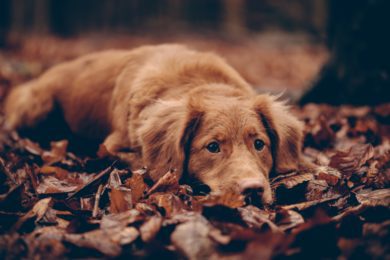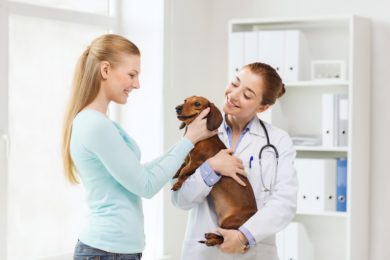Picture this: it’s a gorgeous summer day and you’re at a lively BBQ with your friends (and their pets, of course). You’ve just replenished your ice-cold drink from the cooler and saunder over to your group of comrades who are engaged in what seems to be a truly interesting and engaging discussion. They’re laughing, they’re animated, someone places their hand over their heart as if they’ve been emotionally moved by the conversation. You pop in, curious to learn what dynamic topic could cause such excitement, and that’s when you realize what they’re talking about: pet licensing – the action that bonds pet owners of all backgrounds and interests because sure, it’s the law, but also, it’s the right thing to do for one’s own pet and the animals in need. Jimbo’s sharing what cool initiative at the shelter his lab’s licence helped support, Vicky’s reminiscing on the time her border collie was returned within 2 minutes of becoming lost, and Caleb’s showing off his rescue pup’s new licence tag that he designed himself, complete with a quippy one liner that is so Caleb.
Well, can you picture the above scenario? Yeah, didn’t think so. Can you picture the last time you even spoke about pet licensing out loud? Or thought about pet licensing? Or heck, knew to think about pet licensing? We understand it doesn’t necessarily present itself as a titillating concept, but beneath the surface lies the ultimate conduit for animal welfare that benefits our own pets, local animals in need, and the greater community. We think that’s worth talking about.
The reality is that most pet owners are unaware that pet licensing is a legal obligation, and those who are aware may not fully understand why it’s required or have negative, misconceived feelings on the topic. We’re here to reshape the narrative around pet licences. More than just a tag that lives on your pet’s collar, licences are like a do-good passport for our beloved companions, signaling to the world that they have a responsible owner to return to should they become lost while also supporting local animal welfare initiatives at the same time. But how can a single “measly” licence accomplish all of this?
Pet licences work hard to keep pets and the community safe. The majority of North American communities require pet owners to obtain pet licences in accordance with local laws and regulations regarding pet ownership. A valid licence tag on a collar allows for quick identification and reunification of a lost pet while also acting as an official record of their details and ownership within the community.
Benefitting Pets
For many pet owners, pet licensing can be a confusing and often overlooked topic, and that’s probably why you’re not overhearing any conversations about licensing at your buddy’s BBQ. We totally get it, and that’s why we’re here to set the record straight. The truth is, pet owners should be proud of licensing their pets, that piece of metal on a pet’s collar shows the world that an owner not only loves and cares for their own pet, but they’re helping save lives at the local shelter, too. A licence also shows that an owner is a team player in the community- doing the right thing to benefit the greater good.
Reuniting lost pets with their owners
Who knew an express ticket home could be so cute? If a pet ever goes missing, this information can make all the difference in helping them find their way back home. If a lost pet is found, their licence tag can be a lifesaver as it provides all the necessary information required to easily reunite the pet with their family.
Unlicensed lost pets can be challenging for animal services to identify their owners, resulting in pets spending more time in shelters and taking up valuable resources that other animals in need rely on.
Providing health information
A pet’s licence may also serve as a verified record of their vaccination or spay/neuter status. Airlines, boarding facilities, daycares, and even some parks may require pets to be vaccinated, and a valid licence helps to provide this information in a consolidated fashion. DocuPet licence tags take this a step further by allowing pet owners to provide detailed medical information and even veterinarian information in their pet’s online profile, which is accessible via their linked tag.
Vaccination, particularly against rabies, is a prerequisite for licensing in many communities in an effort to limit the spread of this disease that was once a widespread urgent public health threat. In these communities, a simple glance at a collar lets anyone know that a pet has been vaccinated so long as that licence tag is on display. By complying with these regulations, pet owners can promote not only a safe community but also a healthy one!
Encouraging responsible pet ownership
Our pets would do anything for us, it’s only right that we return the favour by keeping them safe and loved through our responsible actions. Allow us to paint a picture. A not-so-glamorous part of responsible pet ownership is picking up Fido’s poop in public places. Ignoring this, or flat out refusing to do it, causes a nuisance and could straight-up ruin someone’s day (hey, we’ve all been there). Now, imagine actually witnessing this – watching Fido do his business right in the middle of the sidewalk while his owner scrolls on his phone and then walks away – the audacity! Safe to assume Fido’s owner doesn’t give a rip about the effect this mess could have on anyone else, so we roll our eyes and think, “lazy,” “selfish,” and “rude.” Fact is, we’d have much better feelings about Fido’s owner had he promptly reached down with a bag and cleaned the mess, “polite,” “diligent,” “responsible,” we’d think.
Pet licensing is a less stinky version of the above scenario. The absence of a licence tag suggests that an owner has failed to complete a simple action required to keep their pet, along with others, safe in the community. On the flip side, seeing that tag tells us that the owner has chosen to do the responsible, albeit compassionate, thing. Pet licences are part and parcel with responsible pet ownership, but unlike picking up poop, pet licensing is rewarding and dare we say, fun? With a free lost pet service, linked profiles, and a vast selection of colourful and fun licence tags, DocuPet has transformed the (formerly) mundane task of licensing into something pet owners can actually look forward to and rely on.
Benefiting The Community
When pets’ needs and safety are valued, the entire community reaps the benefits. Imagine if all the pets in a given community were licensed. This would equate to all pets with loving homes being easily identifiable, which would mean less intake at the local shelter and more resources available to local animals in need. Pet licensing offers a simple way for pets and their owners to contribute to the greater good by supporting the well-being of the community and animals in need.
A source of funding for local animal initiatives
“But isn’t a pet licence just another tax?” Far from, actually! This is a notorious misconception that we are always excited to debunk.
The allocation of fees collected from pet licences varies depending on location, but in most communities, important animal welfare organizations and/or initiatives rely on pet licences to fund their efforts or existence. In most cases, local shelters are the main beneficiaries of pet licence fees, relying upon those funds to provide essential care and support to a community’s most vulnerable animals. DocuPet aims to provide even more financial support to our country’s shelters through donations: pet owners always have the option to add a donation to their licence order, plus 20% of every designer tag purchase is donated to shelters through our Safe&Happy Fund.
Outside of providing support to shelters, a pet licence could also help to support a myriad of local animal welfare services or programs. This could include rescue services that save animals from dangerous or life-threatening situations, discounted spay and neuter programs to manage the pet population, salary support for Animal Control Officers, and more.
Reduces overcrowding in animal shelters
With a visible and up-to-date licence tag, anyone who comes across a lost pet can quickly identify that the pet has a loving home and is in need of a return to their owner. Unlike traditional licence tags (stamped with only the issuing authority, year, and/or record number), DocuPet tags include a pet owner’s personal phone number or the HomeSafe 24/7 hotline – either may be reached to begin a speedy reunion with the pet’s owner. This ensures a quick reunion without having to endure the stress and uncertainty of a shelter stay while helping to ease the burden on animal shelters and rescue organizations.
By keeping pets with loving homes out of the shelter system, we can free up valuable space and resources to care for the animals that truly need it. A pet’s licence tag is a little thing that makes a big difference in the lives of countless other animals waiting for their forever homes.
Safer streets
Animal Control is an essential service that helps keep both humans and animals safe in our communities. Since lost licensed pets are returned faster than non-licensed lost pets, an effective licensing program within the community means a more efficient allocation of the Animal Control Department’s staff and resources. What else is on their plate besides reuniting lost pets? Conducting investigations of alleged animal abuse or neglect, patrolling and capture of at-large animals, enforcing local animal-related laws, and much more,
Plus, when fewer pets are wandering the streets, there is a reduction in animal-related incidents and injuries, resulting in a safer and more secure environment for everyone.
Pet licences are so much more than their decades-long boring reputation suggests. These little pieces of metal hanging from a collar should be worn with pride, as they are helping to not only protect the furry friend that is wearing it, but to protect all of the animals in a community. Now, take THAT to your next BBQ.
*Please note that licensing parameters vary from community to community.


